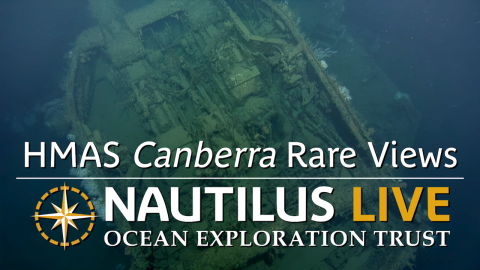
Mick de Ruyter
Mick de Ruyter has enjoyed a naval career in hydrography and mine warfare, combined with an academic career in maritime archaeology. Mick joined the Royal Australian Navy as a midshipman at ADFA in 1992, and went on to specialize as a hydrographic surveyor. He served in a variety of ships for border protection, mine countermeasures and surveying, including on peace keeping duties in the Solomon Islands.
After advanced hydrographic training in the UK, Mick took command of HMAS Mermaid in 2007 for surveys on the north coast of Australia. Following an operations posting in hydrography, Mick left permanent service in 2010 to pursue a role in maritime education and training in the UAE. During this period overseas, Mick re-specialized as a maritime archaeologist and returned to Australia to complete a PhD in archaeology at Flinders University, where he graduated in 2021.
Since re-joining Navy as a reservist in 2019, Mick has had part-time roles as a staff officer, including secondment to Unrecovered War Casualties–Army to provide specialist archaeological support in the successful search for the Japanese POW ship Montevideo Maru in 2023. He continues to work in an advisory capacity with Sea Power Centre–Australia on defense underwater cultural heritage issues, including underwater casualty sites with Army and Air Force. Mick transferred to regular service in 2024 and maintains an academic affiliation with Flinders University.
Tell us about your work/ research. What kinds of things do you do?
I am a maritime archaeologist serving in the Royal Australian Navy and affiliated with Flinders University. Building on a naval career in hydrographic surveying, I have research interests in cultures of fighting at and from the sea, in the archaeology of fighting craft, and in accounting for Australia's unrecovered war casualties. At the Sea Power Centre – Australia I have a part-time role providing advice on underwater cultural heritage issues, in particular on projects aiming to account for Australian service personnel missing in action in past wars.
How did you get involved with the Nautilus Exploration Program?
I became involved as part of the shore team through contacts at the Australian Government Department of Climate Change, Energy, the Environment and Water, as they are responsible for Australia's sovereign underwater cultural heritage, which includes Navy wrecks. HMAS Canberra was one of the Allied ships sunk in the Solomon Islands in 1942.
What other jobs led you to your current career?
In the Royal Australian Navy I specialized in small ship navigation, mine warfare and hydrographic surveying, all areas concerned with the underwater world. A fascination with shipwrecks led to other qualifications in maritime archaeology, an area where I can now bring these skills together to work on underwater cultural heritage and unrecovered casualty cases for defense.
What are your degrees and certifications?
Bachelor of Arts in History – University of New South Wales 1994
Graduate Diploma in Hydrographic Surveying – Plymouth University 2006
Master of Maritime Archaeology – Flinders University 2015; PhD in archaeology – Flinders University 2021
Expeditions
Mick participated in the following Ocean Exploration Trust expeditions:

